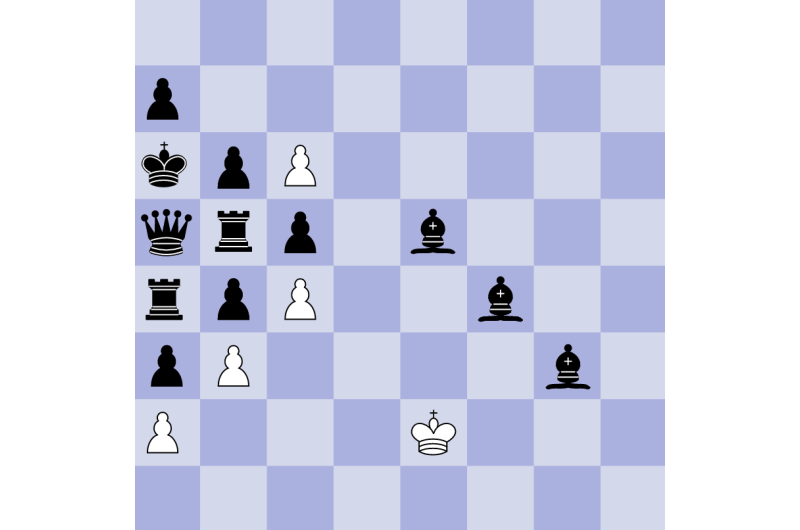Credit: Penrose Institute
(TechXplore)—A team charged with setting up the new Penrose Institute at Oxford has issued a challenge to the general public—overcome a chess challenge printed in the Telegraph and send a note describing how you did it. The challenge, the team at Penrose told the press, was part of a process aimed at learning more about the different ways humans think as compared to how computers arrive at answers.
Several years ago, Roger Penrose, the man who shared the World prize with Stephen Hawking, drew a chess problem on a piece of paper—at first glance, it would appear that the player using the black pieces is going to win without a doubt. The white player has only four pawns left to protect the King and nothing else—The black player has 12 pieces left on the board. But, as Penrose noted, it is possible for white not only to draw, but to win, if black makes a blunder.
The purpose of the chess challenge was to show that under some conditions, a human could beat a computer at chess after all, because the configuration he drew up was too complex for a computer to solve—a computer algorithm would simply assume a win for black. This situation and others like it have caused some in the computer and biological sciences to wonder if the human mind might have a quantum effect that has not been identified—some aspect of our minds that allows us to peer at what looks like an unsurmountable chess configuration and somehow spot the means by which a draw could be forced.
To learn more about such a possible quantum effect, the researchers are looking for help from the general public—they want any and all comers to take a crack at overcoming the challenge and then to write down what happened in their heads as the moment of inspiration struck. They note also that the chess challenge is just the first of a series of puzzles to be published with requests for public assistance. The ultimate goal, of course, is to make computers "smarter" by learning more about how our own brains work, and then mimicking that ability in a machine.
© 2017 TechXplore






















